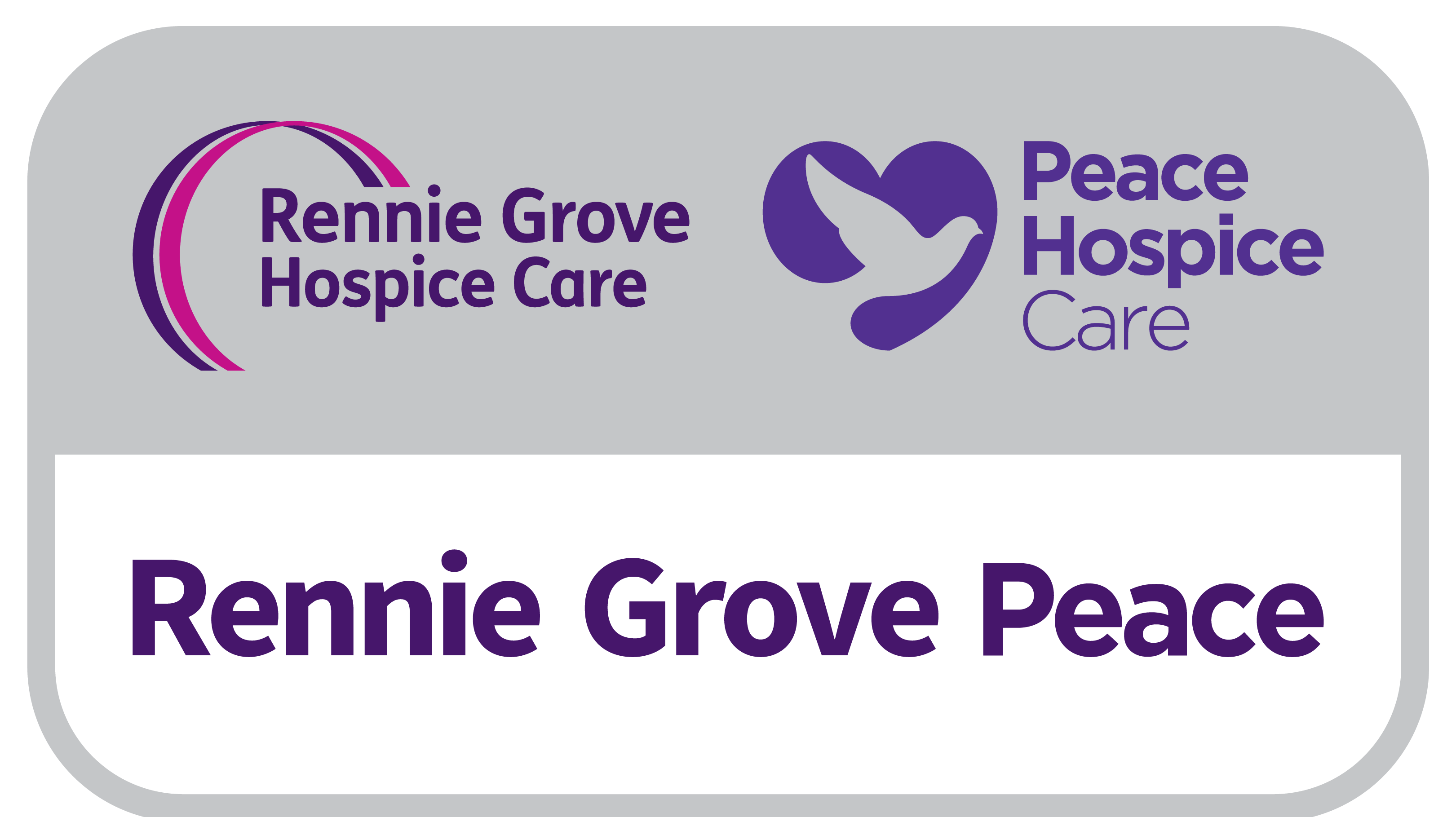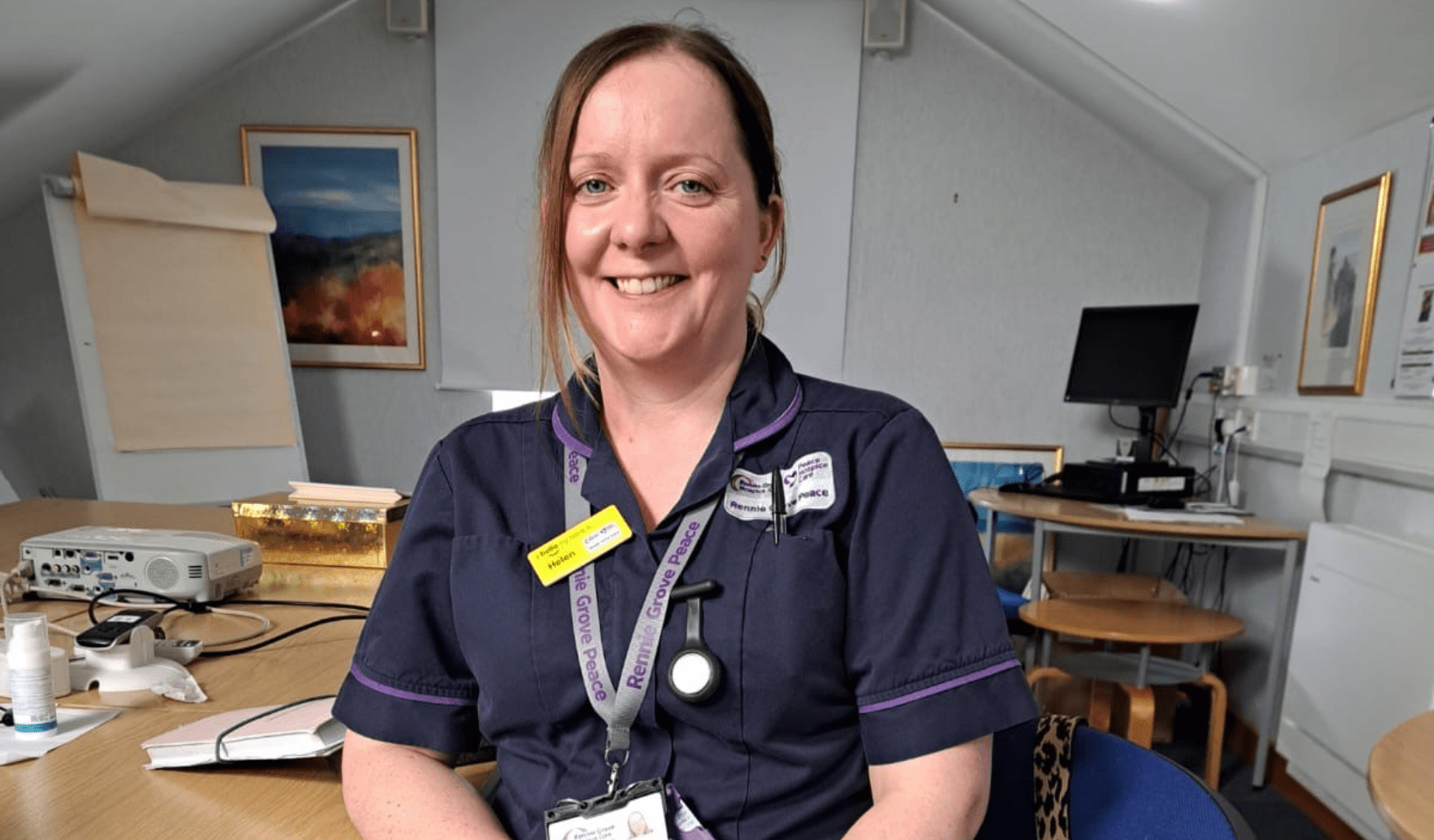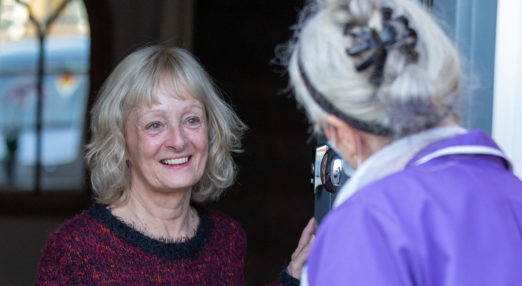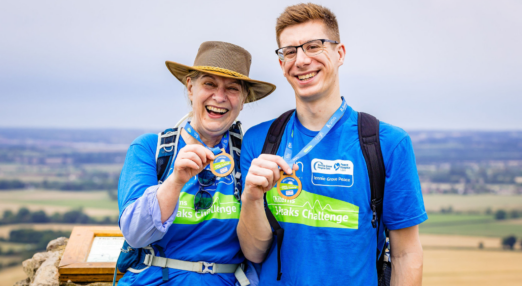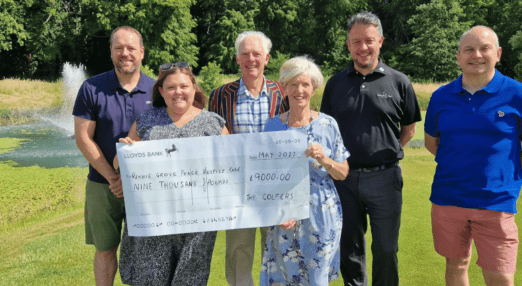Helen Johnson is one of our Clinical Nurse Specialist in the Rennie Grove Peace Hospice at Home team in Buckinghamshire. We spoke to her about her role and how she found her passion working in palliative care.
Helen says: “Shifts vary, but my day generally starts at 7am. Sometimes I go straight to a patient’s house if there is an emergency, but generally I go into the office in Tring to have a handover from the night team. We then head out to our visits. Every day is different, which I love.
“I’ve been at Rennie Grove Peace for three years now, but before that I worked in heart and lung transplants for 12 years at a local hospital. During my time in the hospital role, I did both acute and palliative care. I found I really enjoyed the palliative care side, so it wasn’t much of a leap to move to palliative care in the community. Covid helped me make the decision too, as I was keen to move out of the hospital setting.
“It’s nice to look after people and give them the best quality of life possible. We had a lady recently that we had been looking after for a while. When we first met her she was frightened and in denial and struggling to accept what was happening. I developed a relationship with her, and slowly she started to trust me and open up. She started talking about the future and the type of care she wanted. She became less anxious and more accepting of her situation. When she started to deteriorate, we were able to get on top of her symptoms quickly and she had a peaceful and calm death. Her daughter wrote to me after her mum died to say thank you for the care we showed her mum, and that really touched me.
“How I communicate with a patient about their condition, care and death is very much based on the individual. Some patients want a blow by blow description of what is happening. With others you have to build a relationship before someone will open up about how they feel. I take cues from the patient and their loved ones. I am always gentle and honest and let the patient, and those close to them, direct the type of language they are comfortable with.
“I sometimes refer patients to Supporting Hands, where a trained volunteer goes into a patient’s home and supports with things like respite care to give carers a break, or company if someone is on their own and feeling lonely. The volunteer can also have a cup of tea and a chat with them, which can do wonders for a patient’s mood and general wellbeing, especially for those who are isolated and living alone. We try and match volunteers who have shared interests with the patient, and recently we had a patient who was an avid bird watcher, it was so lovely to see them paired with a volunteer who also loved bird watching!
“The patient is at the heart of everything we do. We want to do the best by them by advocating for them and caring for them. We help to manage their symptoms and make them comfortable, so we help with pain, nausea, vomiting and agitation. Sometimes a patient needs medications via a syringe driver, there are a variety of reasons for this. If this needs adjusting, or we struggle to get symptoms under control, we liaise with the Palliative Care Consultants at the Hospice – they are a great support. The syringe driver runs for 24hours and so the care of this is shared with the District Nursing team – it’s a great multidisciplinary team effort.
“When someone dies we go and do a verification visit and do the necessary paperwork. We call the family a couple of days after the death, to see how they are doing and if they need any further bereavement support, such as our listening and talking therapies.
“I don’t get scared going into those type of situations and having difficult conversations, but sometimes it can be hard. We have to be professional and be able to detach from some of the emotions, but equally show how much we care. I always care for people the way I would like someone to care for my family member, it’s a very human response. I will sit and have a little cry in the car sometimes, and that’s fine too. We also have a very supportive team, we debrief, talk and share our experiences which really helps. We are a very open team, so nothing is off limits and we often brainstorm problems, with people offering different ideas. Having that support and outlet is amazing, as we all understand the strains of the job. I also see it as an honour to be there for people when they need us.
“If I start at 7am, my shift ends at 3pm. I then have to go into ‘mum mode’ and be there for my footie-mad 11-year-old. I try and have a cup of tea, but often I am straight out the door again as ‘chauffeur’ to my son’s multiple sports clubs!”
-

Our care and support
At Rennie Grove Peace, our unique care provides a lifeline of compassion and support to patients, carers, and families facing life-limiting illness within Buckinghamshire and Hertfordshire.
-

Get involved
Donate, fundraise, volunteer or shop with us to make a difference to local families facing life-limiting illness.
-

Fundraise for us
Help Rennie Grove Peace reach more families facing life-limiting illness in Buckinghamshire and Hertfordshire.
